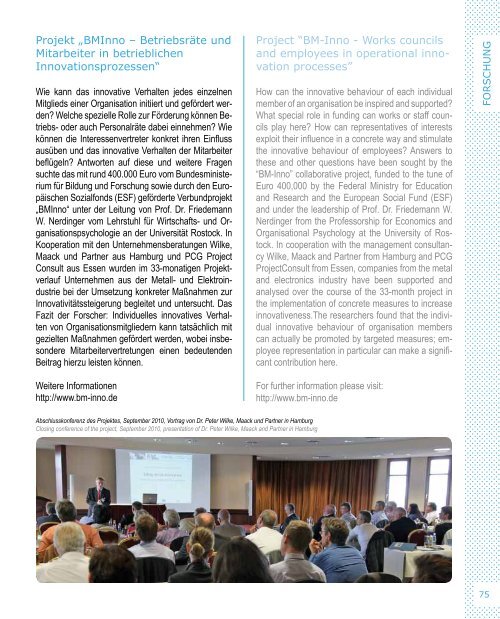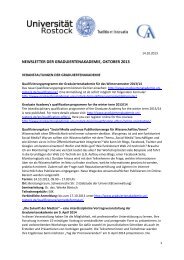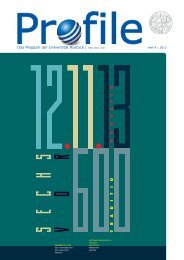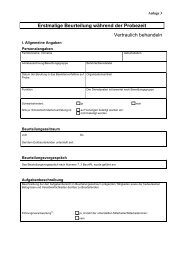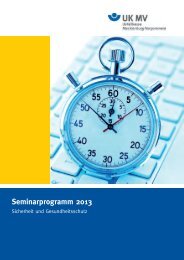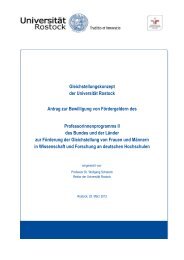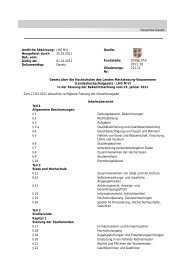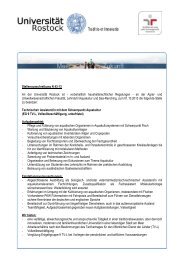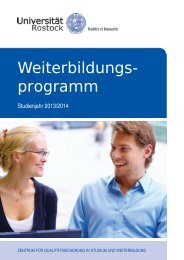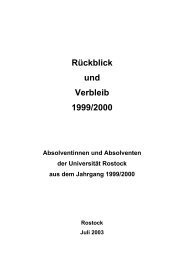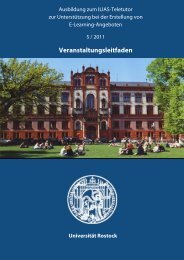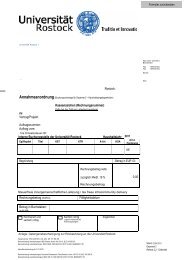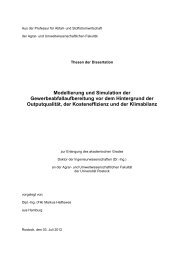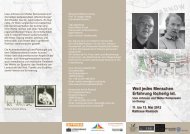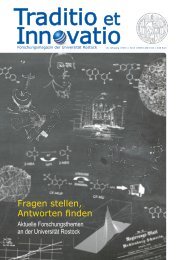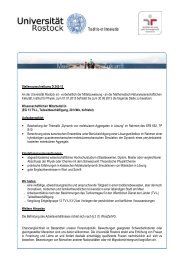Akademisches Jahrbuch Academic Yearbook 2010/2011
Akademisches Jahrbuch Academic Yearbook 2010/2011
Akademisches Jahrbuch Academic Yearbook 2010/2011
Erfolgreiche ePaper selbst erstellen
Machen Sie aus Ihren PDF Publikationen ein blätterbares Flipbook mit unserer einzigartigen Google optimierten e-Paper Software.
Projekt „BMInno – Betriebsräte und<br />
Mitarbeiter in betrieblichen<br />
Innovationsprozessen“<br />
Wie kann das innovative Verhalten jedes einzelnen<br />
Mitglieds einer Organisation initiiert und gefördert werden?<br />
Welche spezielle Rolle zur Förderung können Betriebs-<br />
oder auch Personalräte dabei einnehmen? Wie<br />
können die Interessenvertreter konkret ihren Einfluss<br />
ausüben und das innovative Verhalten der Mitarbeiter<br />
beflügeln? Antworten auf diese und weitere Fragen<br />
suchte das mit rund 400.000 Euro vom Bundesministerium<br />
für Bildung und Forschung sowie durch den Europäischen<br />
Sozialfonds (ESF) geförderte Verbundprojekt<br />
„BMInno“ unter der Leitung von Prof. Dr. Friedemann<br />
W. Nerdinger vom Lehrstuhl für Wirtschafts- und Organisationspsychologie<br />
an der Universität Rostock. In<br />
Kooperation mit den Unternehmensberatungen Wilke,<br />
Maack und Partner aus Hamburg und PCG Project<br />
Consult aus Essen wurden im 33-monatigen Projektverlauf<br />
Unternehmen aus der Metall- und Elektroindustrie<br />
bei der Umsetzung konkreter Maßnahmen zur<br />
Innovativitätssteigerung begleitet und untersucht. Das<br />
Fazit der Forscher: Individuelles innovatives Verhalten<br />
von Organisationsmitgliedern kann tatsächlich mit<br />
gezielten Maßnahmen gefördert werden, wobei insbesondere<br />
Mitarbeitervertretungen einen bedeutenden<br />
Beitrag hierzu leisten können.<br />
Weitere Informationen<br />
http://www.bm-inno.de<br />
Project “BM-Inno - Works councils<br />
and employees in operational innovation<br />
processes”<br />
How can the innovative behaviour of each individual<br />
member of an organisation be inspired and supported?<br />
What special role in funding can works or staff councils<br />
play here? How can representatives of interests<br />
exploit their influence in a concrete way and stimulate<br />
the innovative behaviour of employees? Answers to<br />
these and other questions have been sought by the<br />
“BM-Inno” collaborative project, funded to the tune of<br />
Euro 400,000 by the Federal Ministry for Education<br />
and Research and the European Social Fund (ESF)<br />
and under the leadership of Prof. Dr. Friedemann W.<br />
Nerdinger from the Professorship for Economics and<br />
Organisational Psychology at the University of Rostock.<br />
In cooperation with the management consultancy<br />
Wilke, Maack and Partner from Hamburg and PCG<br />
ProjectConsult from Essen, companies from the metal<br />
and electronics industry have been supported and<br />
analysed over the course of the 33-month project in<br />
the implementation of concrete measures to increase<br />
innovativeness.The researchers found that the individual<br />
innovative behaviour of organisation members<br />
can actually be promoted by targeted measures; employee<br />
representation in particular can make a significant<br />
contribution here.<br />
For further information please visit:<br />
http://www.bm-inno.de<br />
Abschlusskonferenz des Projektes, September <strong>2010</strong>, Vortrag von Dr. Peter Wilke, Maack und Partner in Hamburg<br />
Closing conference of the project, September <strong>2010</strong>, presentation of Dr. Peter Wilke, Maack and Partner in Hamburg<br />
FORSCHUNG<br />
75


